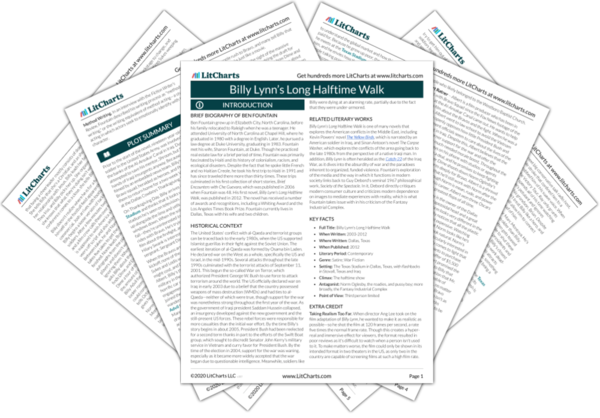This paradox is a nod to the novel
Catch-22, a defining work of satire about World War II and a common comparison to
Billy Lynn. By including this reference, Fountain situates the novel as a similarly satirical critique of war and the film industry. Once again, Albert is more interested in making money off of the Bravos than telling their story accurately and depicting the reality of war.
